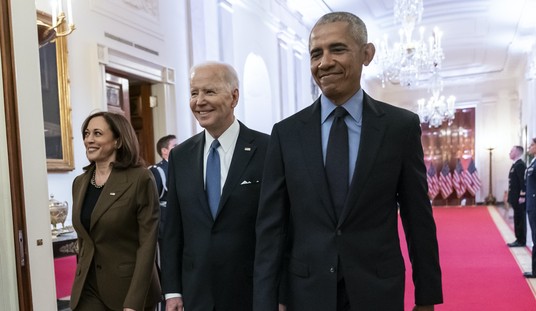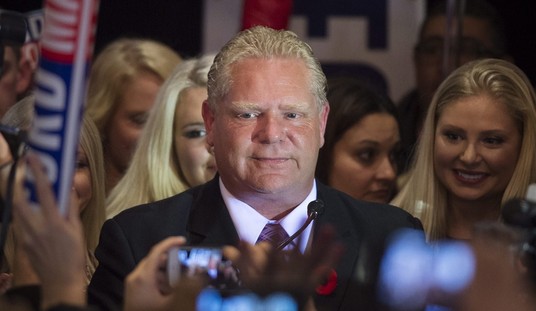“The right-wing government is in danger. Arab voters are coming out in droves to the polls. Left-wing organizations are busing them out.”
So wrote Benjamin Netanyahu in a Facebook post on March 17, the day of Israel’s elections. Since then the words have been a cause célèbre among critics of Israel—and not least, American Jewish liberals.
The Jerusalem Post reports that a “yawning divide has opened between liberal US Jews and the right-wing Jewish Israeli majority that reelected…Netanyahu,” and that:
More than any of the prime minister’s other statements—which included skepticism about the feasibility of the two-state solution and complaints about foreign influence on Israeli politics—Netanyahu’s fear-mongering against Arabs touched a deep nerve among US liberals who voted for Obama.
Among many other responses, Netanyahu’s words have sparked calls by American Jewish liberals Peter Beinart and Jeremy Ben-Ami (president of J Street) for the Obama administration to “punish” Israel and boycott its presence in lands captured in the 1967 Six Day War.
Now that Passover is here, we hear the usual calls for Jewish unity: we’ve all been in it together a long time, and continue to face challenges. But is unity really a possibility? Is there a way to bridge the “yawning divide” between Israel and liberal American Jews who are convinced that the Jewish state has lost its way?
To begin with, Netanyahu’s words weren’t lovely. He could have softened them by substituting, perhaps, “Arab citizens who oppose me” for “Arab voters.” He was indeed playing on fears; he wanted to make sure complacent people went out and voted for his Likud Party.
It’s been pointed out, though, that such things have been known to happen in bitterly contested campaigns. In the 2012 U.S. campaign, Joe Biden’s statement to a largely African-American audience that the Republicans would “put you all back in chains” was a clear case of racial fear-mongering.
It didn’t, however, evoke horror among American Jewish liberals—let alone calls to punish America, or declarations that they were disengaging from it as a country.
It can also be pointed out that Netanyahu’s remark was atypical of him, and that a few days later he apologized to Israeli Arabs. And it may also be worth pointing out that Israel’s Arab minority indeed “votes in droves,” has full rights, and sees Israel as a “good place to live.”
But it’s not enough to impress Jewish liberals of the Beinart and Ben-Ami stripe. They say they can no longer “identify” with an Israel that—in their view—no longer makes the grade morally.
Apart from Netanyahu’s Facebook post, their bitterest complaint is that Israel’s 2015 elections have returned two ultra-Orthodox Jewish parties to the governing coalition—parties that take a dim view of the Conservative, and particularly Reform, Judaism that many American Jewish liberals practice.
Here, though, it seems that Israel can’t win. Ultra-Orthodox Jews form about 10 percent of the Israeli Jewish population and are entitled to political representation. It’s known as democracy. Real friends of Israel admire its democracy and are prepared to respect the results of its elections. But for American Jewish liberals, Israel only gets credit if the election results are to their liking.
Confession: I normally don’t pay too much attention to American Jewish liberals or read much of what they write. My own impression, though, from some Facebook disputes with some of them is that Netanyahu’s “Arab voters” indiscretion didn’t so much cause them dismay, but something more like schadenfreude—or even, deep down, celebration.
In other words, they’ve been looking for an excuse to disengage from Israel, and Netanyahu’s words gave them one. Their real problem with Israel is that, when they look at it, they don’t get the sensation of looking into a mirror; they don’t see themselves.
In the closed cultural, moral, and political world of what is now called “liberalism” — of which American Jewish liberals are very much a part — a hawkish Israeli electorate that views its environment as threatening is not acceptable. Environments are not threatening by nature; one makes them threatening by creating grievances among people — in Israel’s case, by “denying the Palestinians a state.”
Here, objections about Hamas, or the violent outcomes of previous Israeli concessions, will get you nowhere. In the comfortable world of Israel’s “liberal” overseas brethren, one resolves threats by making deals and goes on with one’s comfortable life.
The antagonism to religion’s role in Israel similarly disregards the fact that Israel is a Middle Eastern country where religion is not just a marginal phenomenon but a key source of identity and values, and yes, a significant political player. For most American Jewish liberals, religion has to be quarantined from public life. Israel follows a different historical trajectory; its sense of self, symbols, commemorations, and even language have grown from a substrate of Judaism. Again, it doesn’t fit the “liberal” box.
If Israel and part of Diaspora Jewry are in different orbits of values and ideology, how much should it concern us here in Israel? That some Diaspora Jews adopt a general mindset that weakens their bond to specific Jewish nationality or religion is actually, from a Zionist standpoint, inevitable. One could wish it otherwise, but it’s in the cards that some Disapora Jews drift away from us.
The main downside is that some of these “liberal” brethren, endorsing an anti-Israeli government of their own, are going to be hitting us hard in public. It doesn’t make for much “unity.” But Passover tells us that, since the days of the Book of Exodus, we’ve survived worse things.
******
image illustration via shutterstock / tomertu










Join the conversation as a VIP Member